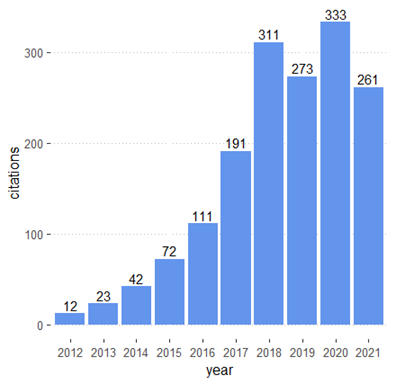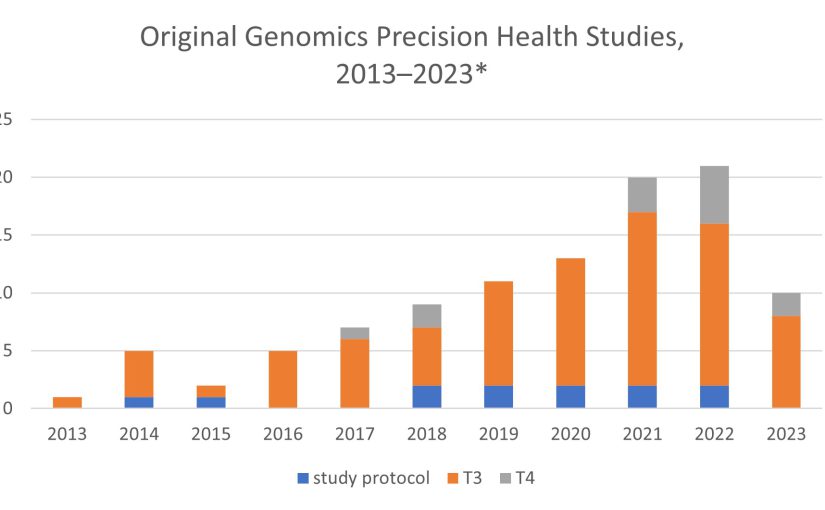Search Results
10 results for pharmacogenomic
Cost-effectiveness of Pharmacogenomic Testing: How to Measure the Value of Having the Right Dose of the Right Drug for the Right Patient

A recent systematic review that assessed the cost-effectiveness of pharmacogenetic testing for drugs with existing guidelines concluded that most studies favored pharmacogenomic testing. The significance of this conclusion must be interpreted with caution and in the context of study factors, such as funding sources, geography, cohort, and the cost-effectiveness comparisons being made. Pharmacogenomics (PGx) combines
Posted on byUsing Pharmacogenomics to Better Understand the Role of Selected Medications and Birth Defect Risk

Through a funding opportunity from CDC’s Office of Genomics and Precision Public Health in collaboration with the Office of Advanced Molecular Detection, CDC’s Birth Defects Monitoring and Research Branch in the National Center on Birth Defects and Developmental Disabilities will conduct a 2-year project to gather genome-wide genotyping data to look at relationships between pharmacogenomic
Posted on byTracking the Scientific Literature on the Impact of Pharmacogenomics on Clinical Practice and Public Health

Pharmacogenomics (PGx) is an emerging field that investigates genetic differences in drug effectiveness and safety. PGx is an essential component of precision medicine and seeks to provide the right medication for the right person at the right time. Advances in PGx promise to improve treatment of many diseases such as cancer and cardiovascular disease. In
Posted on byIntegrating Pharmacogenomics in Practice: One GIFT at a Time or a Package Deal?

Testing for genetic variants related to warfarin metabolism has been the poster child for pharmacogenomics in clinical practice for over a decade. A recent publication of the Genetic Informatics Trial (GIFT) provides additional evidence for the clinical benefits of incorporating pharmacogenomics testing into the management of warfarin initiation. In this multicenter study of older individuals
Posted on byEvidence Matters in Genomic Medicine- Round 4: Where are we with Pharmacogenomic Tests?

Previously, CDC’s Office of Public Health Genomics announced a list of health-related genomic tests and applications, stratified into three tiers according to the availability of scientific evidence and evidence-based recommendations and systematic reviews. The list is intended to promote information exchange and dialogue among researchers, providers, policy makers, and the public. Initially the table relied
Posted on byMedications for the Masses? Pharmacogenomics is an Important Public Health Issue

Adverse drug events are a serious public health problem. Consider the following facts: an estimated 82% of American adults take at least one medication and 29% take five or more; 700,000 emergency department visits and 120,000 hospitalizations are due to adverse drug events annually; $3.5 billion is spent on extra medical costs of adverse drug
Posted on by 3 CommentsGet up to Speed on the Latest Developments in the Field! Register for the ORISE Current Issues in Genomics and Precision Public Health Online Training Event, September 7–8, 2023.

Advances in genomics, data science, machine learning, and artificial intelligence are transforming practice. Next generation public health and medical workforces need to understand these developments and how they can be used to benefit population health. Recognizing this challenge, Oak Ridge Institute for Science and Education (ORISE) is partnering with the Office of Genomics and Precision
Posted on byTracking the Contributions of Implementation Science to the Population Health Impact of Genomics and Precision Health: A New Knowledge Base

Successful implementation of evidence-based genomic and precision health interventions requires an understanding of what works and what doesn’t work within the context of various clinical and public health settings. Research and evaluation that incorporate implementation science tools and methods into the translation of these interventions facilitate this. Here we present a new CDC knowledge base,
Posted on by 1 CommentPopulation Screening for Rare Pathogenic Variants as the Low Hanging Fruit for Public Health Genomics Across the Lifespan

Rapid advances in human genome sequencing technologies have accelerated the integration of genomics into clinical practice. Genomics has demonstrated clinical utility as a diagnostic tool for certain diseases, but its potential for population screening is still work in progress. In principle, DNA-based population screening can identify persons with rare pathogenic variants who are at high
Posted on by 1 CommentAdvancing Genomic Medicine in Africa: Work in Progress

A 2021 report by the African Academy of Sciences (AAS), the Alliance for Accelerating Excellence in Science in Africa (AESA), and the African Union Development Agency (AUDA-NEPAD) presented a framework for the implementation of genomic medicine for public health in Africa. Globally, there is widespread recognition of the potential of genomic medicine (GM) to improve
Posted on by

